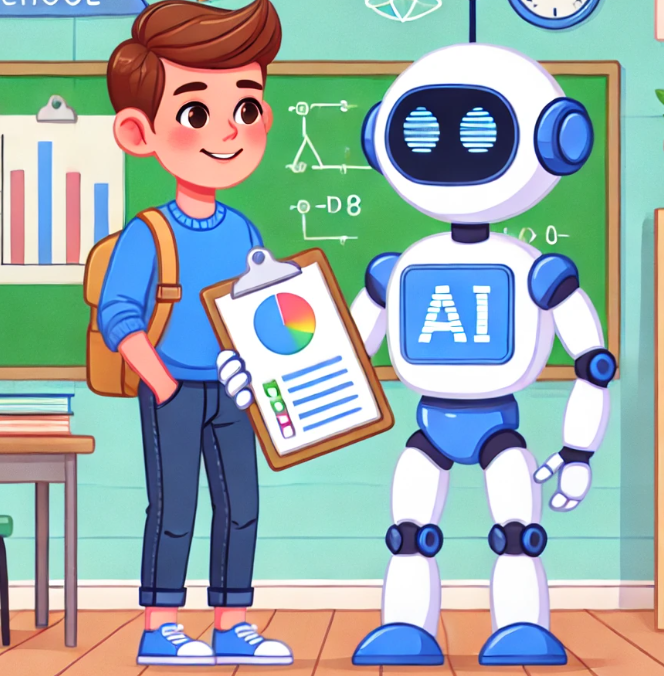
The Rise of AI in Education
Artificial intelligence (AI) is no longer just a concept from science fiction; it’s now being integrated into classrooms across the country. AI is assisting teachers in customizing lessons and supporting students’ emotional well-being. As parents, you may naturally wonder what this means for your child. This week, we are exploring how AI is being utilized in school psychology and what implications it may have for your family.
Understanding the Role of AI in Schools
AI technology is evolving quickly, and education is one of the fields seeing the biggest changes. Instead of one-size-fits-all teaching, schools are using AI systems to better understand each student’s learning style—whether they thrive on visuals, hands-on activities, or step-by-step instructions. These systems can gather data from quizzes, classroom behavior, and even student writing to help teachers tailor their lessons and support.
Think of it like a virtual assistant for educators—one that’s focused on your child’s unique learning needs.
How AI Can Help Students Thrive
Here are some of the ways AI is being used to support students—especially when it comes to learning and mental health:
- Personalized Learning: AI tools can adjust lessons and assignments based on your child’s strengths and challenges. If your child struggles with math but excels in reading, the technology can adapt and provide more support where it’s needed most.
- Early Intervention: AI can flag signs that a student might be falling behind—sometimes even before a teacher notices. That means extra help can come sooner, not later.
- Mental Health Monitoring: Some schools are using AI to look for patterns in student behavior that may indicate stress, anxiety, or emotional struggles. This can help school psychologists step in early and offer support.
Challenges and Concerns for Parents and Schools
Of course, with new technology comes new concerns. Here are a few things parents should keep in mind:
- Data Privacy: When schools collect data on students, families need to know how that information is being used and protected. Strong privacy policies are essential.
- Training for Teachers: AI works best when educators know how to use it effectively. That means ongoing professional development is crucial.
- Equity and Access: Not all schools have the same resources. We need to make sure that AI helps close learning gaps—not widen them.
What’s Happening in Real Classrooms?
Some schools are already utilizing AI effectively. According to The New York Times, teachers are utilizing AI tools to provide students with instant feedback on their assignments, thereby allowing class time to be dedicated to more in-depth discussions and individualized support. Additionally, a Scientific American article highlighted how AI-powered tutoring programs are improving student performance in science and math, particularly in schools with large class sizes.
These examples demonstrate that, when used thoughtfully, AI can enable educators to do more of what they do best: connect with students and support their growth.
What’s Next? A Future to Watch Closely
The potential for AI in school psychology is truly exciting. Picture tools that provide teachers and counselors with real-time insights into students’ academic and emotional well-being. However, it’s crucial to use this technology in a way that prioritizes people. This involves collaborating closely with educators, school psychologists, and parents like you to ensure that we make smart and ethical decisions..
Watch This Video on AI in Education (from 5 years ago!)
Let’s Keep the Conversation Going
Have you seen AI being used in your child’s school? Are you excited—or concerned—about its growing role in education? We’d love to hear from you. Share your experiences, questions, or thoughts in the comments below.
And don’t forget to subscribe to our newsletter to stay in the loop about the latest developments in school psychology, AI, and how they’re shaping the future of learning.
Together, let’s make sure technology supports every child—equally, thoughtfully, and with care.



